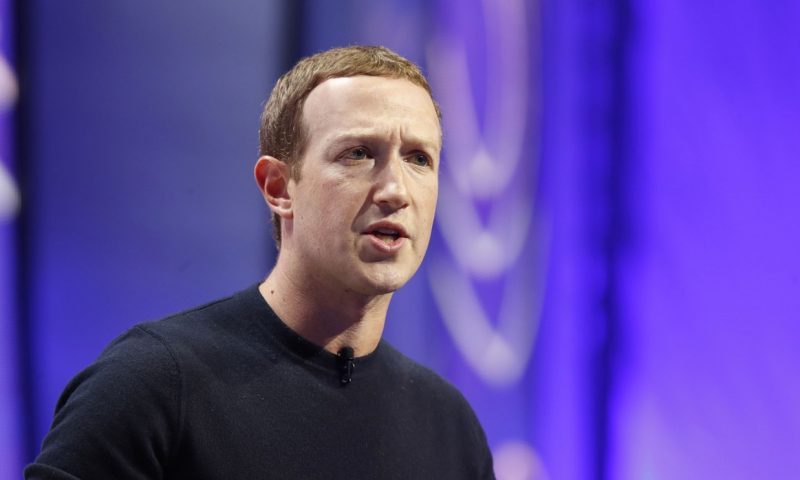CEO raised alarm over app’s commitment to free speech, warned of risks posed by Chinese tech firms
When Facebook Inc. Chief Executive Mark Zuckerberg delivered a speech about freedom of expression in Washington, D.C., last fall, there was also another agenda: to raise the alarm about the threat from Chinese tech companies and, more specifically, the popular video-sharing app TikTok.
Tucked into the speech was a line pointing to Facebook’s FB, -0.74% rising rival: Zuckerberg told Georgetown students that TikTok doesn’t share Facebook’s commitment to freedom of expression, and represents a risk to American values and technological supremacy.
That was a message Zuckerberg hammered behind the scenes in meetings with officials and lawmakers during the October trip and a separate visit to Washington weeks earlier, according to people familiar with the matter. In a private dinner at the White House in late October, Zuckerberg made the case to President Donald Trump that the rise of Chinese internet companies threatens American business, and should be a bigger concern than reining in Facebook, some of the people said.
Zuckerberg discussed TikTok specifically in meetings with several senators, according to people familiar with the meetings. In late October, Sen. Tom Cotton, R- Ark. — who met with Zuckerberg in September — and Sen. Charles Schumer, D-N.Y., wrote a letter to intelligence officials demanding an inquiry into TikTok. The government began a national-security review of the company soon after, and by the spring, Trump began threatening to ban the app entirely. This month he signed an executive order demanding that TikTok’s Chinese owner, ByteDance Ltd., divest itself of its U.S. operations.
Few tech companies have as much to gain as Facebook from TikTok’s travails, and the social-media giant has taken an active role in raising concerns about the popular app and its Chinese owners.
In addition to Zuckerberg’s personal outreach and public statements about Chinese competition, Facebook has established an advocacy group, called American Edge, that has begun running ads extolling U.S. tech companies for their contributions to American economic might, national security and cultural influence. And Facebook overall in the first half of this year spent more on lobbying than any single company, according to data from the Center for Responsive Politics. In 2018, by contrast, it ranked eighth among companies, the center’s data show.

